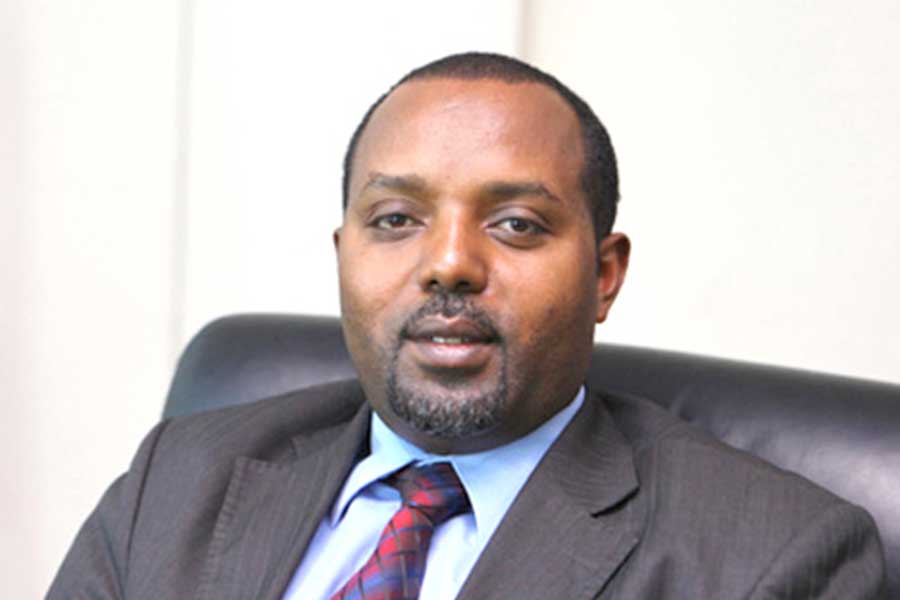
Fortune News | Feb 01,2020
The Ethiopian insurance industry has pledged to donate 75 million Br to support a series of state development projects, including the “Gebeta Le’hager” initiative.
This move comes as a response to the call made by the National Bank of Ethiopia (NBE) Governor Mamo Mihretu, who urged banks and insurance firms to contribute to the country’s development agenda. The state-owned Ethiopian Insurance Corporation (EIC) will contribute 50 million Br, while 17 private insurance firms will cover the remaining 25 million Br.
Pledges by the financial sector are part of a series of fundraising initiatives launched by Prime Minister Abiy Ahmed’s administration to raise funds for the construction of projects, including the Koysha, Wonchi, and Gorgora projects, which have a total projected cost of six billion Birr. The government plans to cover half of the financing through fundraising efforts.
While some believe this initiative is an opportunity for corporations to meet their social responsibilities and create employment, others express concerns over the decision to contribute to state projects without shareholders’ consent. Shareholders who had anticipated dividends are upset to learn that some will be used to finance state projects, seeing it as a violation of their rights.
This comes amid a series of fundraising initiatives launched by Prime Minister Abiy Ahmed’s (PhD) administration, such as “Dine for Sheger,” “Dine for the Generation,” and “Dine for Ethiopia,” which aim to raise funds for the construction of projects. The Koysha, Wonchi, and Gorgora projects are projected to cost six billion Birr, with plans to cover half of the financing from fundraising efforts. The three initiatives will be implemented in the Oromia, Amhara, and Southern regional states.
One of the CEOs confirmed receiving the letter last week. He feels that they were left with no other choice but to contribute following the approval from their board of directors.
“The board represents shareholders,” said the CEO.
Two years ago, 4.2 billion Br was raised towards the projects, exceeding the initial target of three billion Birr through “Dine for Ethiopia.”
Jemila Kibert, a board member at Global Insurance, believes the initiative presents a good opportunity for corporations to meet their social responsibility while providing employment opportunities.
“Corporates usually allocate budgets for social initiatives,” said Jemila.
Not everyone is pleased with the decision to contribute to state projects. A founding shareholder of one of the veteran insurance firms expressed dismay over the decision made without his consent. He contemplates stopping buying shares altogether as they have become less rewarding.
Sewale Abate, a finance lecturer at Addis Abeba University, shares the concern. He argued that the amount pledged by insurance companies is greater than what is usually allocated for social responsibility.
“Shareholders assign a board of directors to represent their best interests,” Sewale said.
However, he suspects that the boards may have consented to the contributions out of fear of potential consequences that could follow a nonacceptance. Sewale also questioned the timing of the request, as financial institutions have not yet recovered from the bond requirements of the central and the state-owned Development Bank of Ethiopia (DBE).
In September of last year, authorities pressured heads of financial institutions to contribute up to two percent of gross profits to the Ethiopian National Defense Forces (ENDF). They chipped in no less than 800 million Br. Abe Sano, president of the Ethiopian Bankers’ Association, asked last week private banks to disclose the amount they are willing to contribute to the cause.
The Commercial Bank of Ethiopia (CBE) has already pledged 1.2 billion Br, equivalent to 7.2pc of its profits from the previous fiscal year. The DBE has committed to giving six percent of its net profit from the previous year, while private banks have agreed to contribute five percent of their profits towards the projects. Close to 16 private banks made an aggregate of 20.7 billion Br in net profit last year.
Banks that have not yet turned a profit, as they have begun operations this year, have been asked to lower their contribution to 0.5pc of their capital.
However, shareholders who had anticipated dividends are upset to learn that some of it will be used to finance state projects.
Tesfaye Chane, a shareholder of Awash Bank with stakes worth more than a million Birr, was unhappy to discover the decision made on his behalf. Awash Bank recorded a 5.3 billion Br profit from its operation last year.
Tesfaye had planned where his dividend would be invested. He believes the management should have used text messages to get shareholders’ consent, at the very least.
“It’s one of my income sources,” Tesfaye told Fortune. “This is a violation of shareholders’ rights."
According to Abie, also president of the CBE, the government’s efforts to mobilize funds from the financial sector reflect its commitment to achieving the country’s long-term development. He highlighted the importance of collective contributions towards the betterment of Ethiopia.
PUBLISHED ON
[ VOL
, NO
]

Fortune News | Feb 01,2020

Radar | Jul 30,2022

Radar | May 24,2025

Radar | Aug 31,2019

Fortune News | May 27,2023

Fortune News | Feb 22,2020

Radar | Apr 26,2019

Radar | May 25,2024

Exclusive Interviews | Dec 23,2023

Radar | Dec 04,2022

Dec 22 , 2024 . By TIZITA SHEWAFERAW
Charged with transforming colossal state-owned enterprises into modern and competitiv...

Aug 18 , 2024 . By AKSAH ITALO
Although predictable Yonas Zerihun's job in the ride-hailing service is not immune to...

Jul 28 , 2024 . By TIZITA SHEWAFERAW
Unhabitual, perhaps too many, Samuel Gebreyohannes, 38, used to occasionally enjoy a couple of beers at breakfast. However, he recently swit...

Jul 13 , 2024 . By AKSAH ITALO
Investors who rely on tractors, trucks, and field vehicles for commuting, transporting commodities, and f...

Jun 28 , 2025
Meseret Damtie, the assertive auditor general, has never been shy about naming names...

Jun 21 , 2025
A well-worn adage says, “Budget is not destiny, but it is direction.” Examining t...

Jun 14 , 2025
Yet again, the Horn of Africa is bracing for trouble. A region already frayed by wars...

Jun 7 , 2025
Few promises shine brighter in Addis Abeba than the pledge of a roof for every family...